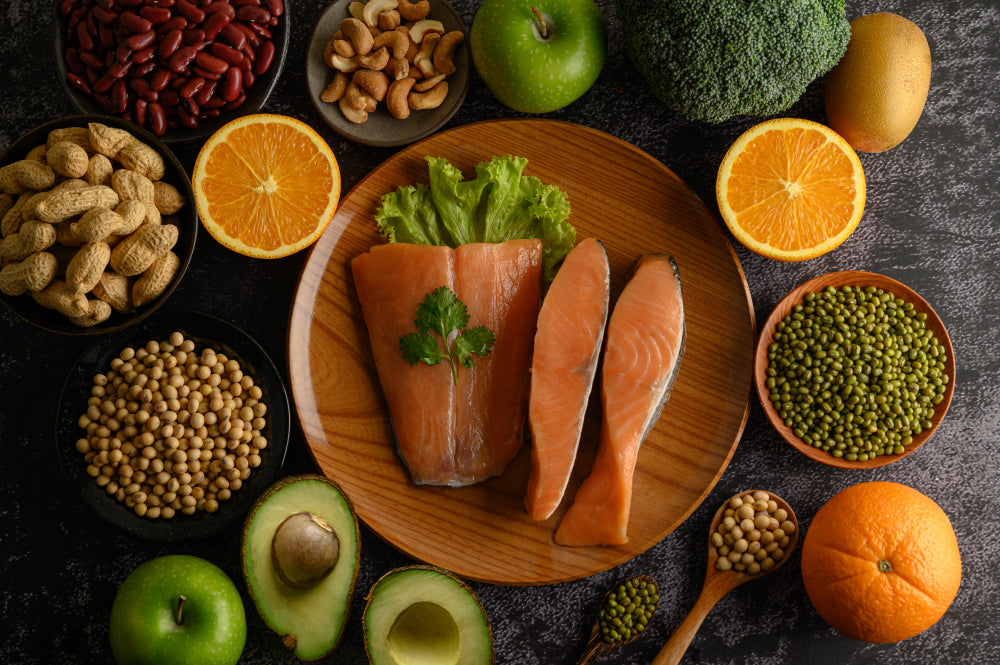
Diet: No Magic Menopause Meal Plan—Just Balanced Nutrition
There’s no such thing as a proven “menopause diet.” Many marketed diets are often just clever sales tactics pushing restrictive eating or special products. Instead, focus on what supports your health at every stage of life: a heart-healthy eating pattern rich in whole grains, lean proteins, healthy fats, and fiber-filled foods. Diets like the Mediterranean or DASH diet are excellent models—they promote hormonal balance, heart health, and metabolism.
If you notice weight gain without changing your routine, consider your activity levels and portion sizes. As we age, reduced physical activity is common, and if eating habits don’t adjust accordingly, it leads to gradual weight gain.
Balance is key—not just in meal timing but also in macronutrient intake. According to Health Canada’s Acceptable Macronutrient Distribution Ranges (AMDR) [13]:
-
Carbohydrates: 45–65% of daily calories
→ Aim for at least 25 grams of fiber daily; fewer than half of Canadian women meet this goal! -
Fat: 20–35%
→ Prioritize unsaturated fats like olive oil, nuts, and seeds. -
Protein: 10–35%
→ Include a mix of lean animal and plant-based sources.
Why Protein Matters More Than Ever
Protein is made up of amino acids—your body’s building blocks—not primarily an energy source, but a vital nutrient for many bodily functions.
Key roles of protein and amino acids include:
-
Building & Repairing Muscle and Tissue: Amino acids support growth and maintenance of muscles, skin, organs, and aid recovery after injury or exercise.
-
Producing Hormones & Enzymes: Many hormones (like insulin and serotonin) and enzymes that regulate body processes are made from amino acids.
-
Strengthening the Immune System: Amino acids create antibodies that fight infections and illness.
-
Supporting Brain Function: They help form neurotransmitters like serotonin, dopamine, and GABA that affect mood, focus, and sleep.
-
Carrying Oxygen in the Blood: Protein builds hemoglobin, which transports oxygen in red blood cells.
How much protein do you need?
Health Canada recommends about 0.8 grams per kilogram (kg) of body weight (roughly 0.36 grams per pound) daily for sedentary adults. However, protein needs increase with age, activity, and life stage. Active midlife women may benefit from 1 to 1.5 grams per pound of body weight to maintain muscle and support overall health. The ideal amount varies—finding what fits your lifestyle and body is key.
